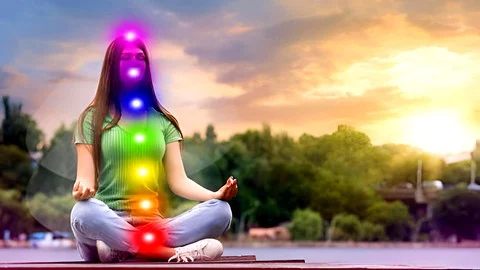Unlocking Your Energy: The 7 Essential Types of Rest You Need to Thrive
Are you perpetually exhausted, even after a full night's sleep? In 2025, the relentless pace of modern life often leaves us feeling depleted, struggling to maintain focus and enthusiasm. This pervasive fatigue isn't just about sleep deprivation; it signals a deeper need for varied forms of rejuvenation. Understanding the types of rest you need is crucial for holistic well-being.
The Pervasive Problem of Persistent Tiredness
Many of us find ourselves in a constant state of low-grade exhaustion, a common symptom of our always-on culture. We push through demanding workdays, juggle personal responsibilities, and navigate an increasingly noisy digital landscape. This isn't merely about physical tiredness; it's a profound depletion that impacts our mental clarity, emotional resilience, and overall quality of life. As Dr. Alexa Davis, a physician at Medical Transformation Center, notes, "The demands we face in our daily lives leave us feeling overwhelmed and depleted, even with adequate sleep." This ongoing strain can manifest as irritability, brain fog, and a general lack of motivation.
Why More Sleep Isn't Always the Solution
The traditional approach to fatigue often centers on getting more sleep. While crucial, simply increasing hours in bed often fails to address the root causes of our exhaustion. The reason? Sleep is just one component of true rest. Our bodies and minds require a spectrum of restorative activities that go beyond unconscious slumber. When we only focus on sleep, we neglect other vital areas where our energy reserves are being drained, leading to a persistent feeling of being "tired of being tired." Stanford researchers have highlighted how mental and emotional stressors can be as taxing as physical exertion, demanding different forms of recovery.
The Root Cause: Seven Dimensions of Depletion
The fundamental issue lies in a misunderstanding of what rest truly entails. Dr. Saundra Dalton-Smith, an internal medicine physician, posits that there are actually seven distinct types of rest you need to feel truly recharged and refreshed. Beyond physical rest, these include mental, emotional, social, sensory, creative, and spiritual rest. Each type addresses a specific form of energy depletion, and neglecting any one can leave us feeling out of balance. Harvard's wellness experts (2024) emphasize the integrated nature of these rest types, noting that a deficit in one area can impact others.
The Routinova Rest Framework: Your Path to Full Recharge
To combat persistent fatigue, Routinova advocates for a comprehensive approach that integrates all seven types of rest. This framework provides a structured way to identify and address specific energy drains, moving beyond generic advice to tailored solutions for your unique needs. By consciously incorporating these diverse forms of rest, you can build resilience, enhance productivity, and cultivate a deeper sense of well-being.
Implementing the 7 Types of Rest: A Step-by-Step Guide
Here's how to understand and integrate each of the seven essential types of rest you need into your daily life:
Physical Rest
Physical rest is the most recognized form, focusing on the body's recovery. It encompasses both passive (sleep, naps) and active (stretching, gentle yoga, massage) restoration.
Signs you're lacking physical rest:
- Persistent exhaustion despite adequate sleep.
- Chronic muscle soreness or tension.
- Increased susceptibility to illness.
- Reliance on sugar or caffeine for energy.
How to Recharge Physically:
- Prioritize 7-9 hours of quality sleep nightly.
- Take short power naps (20-30 minutes) when feeling drained.
- Incorporate gentle stretching or restorative yoga into your routine.
- Consider a massage or foam rolling to release tension.
- Enjoy a warm bath with Epsom salts for muscle relaxation.
Mental Rest
This type of rest is about quieting the mind, taking a break from constant analysis, planning, and problem-solving. It's crucial for mental clarity and focus.
Signs you're lacking mental rest:
- Difficulty concentrating or persistent brain fog.
- Frequent forgetfulness or making simple errors.
- Racing thoughts, especially at bedtime.
- Feeling overwhelmed by even minor tasks.
How to Recharge Mentally:
- Schedule short, deliberate mind breaks throughout your workday.
- Offload thoughts by writing down to-do lists or journaling.
- Engage in simple, repetitive tasks like washing dishes to disengage your brain.
- Reduce digital clutter: close unnecessary browser tabs and streamline your to-do list.
- Practice mindfulness meditation or deep breathing exercises.
- Take a walk in nature to clear your head.
Emotional Rest
Emotional rest allows you to express your true feelings and be your authentic self, free from the pressure of people-pleasing or maintaining a false positive image.
Signs you're lacking emotional rest:
- Feeling compelled to hide your true emotions from others.
- Saying "yes" when you desperately want to say "no."
- Emotional exhaustion from caretaking or constant people-pleasing.
- Routinely responding with "I'm fine" when you're not.
How to Recharge Emotionally:
- Spend quality time with individuals who accept you unconditionally.
- Journal your thoughts and feelings to reconnect with your inner self.
- Establish clear, healthy boundaries and learn to politely decline requests.
- Seek guidance from a mental health professional like a therapist or counselor.
Social Rest
Social rest involves consciously choosing relationships that uplift and energize you, while minimizing interactions that drain your social battery. It's about quality over quantity.
Signs you're lacking social rest:
- Feeling obligated to be "on" or perform in social settings.
- Spending more time with takers than givers.
- Experiencing loneliness even when surrounded by people.
- Feeling depleted after social gatherings.
- Actively avoiding social situations.
How to Recharge Your Social Battery:
- Limit exposure to energy-draining individuals or toxic relationships.
- Prioritize connections with positive, supportive people.
- Schedule intentional alone time to decompress and recharge.
- Opt for meaningful one-on-one interactions over large group events.
- Practice saying "no" to social commitments that don't align with your energy levels.
Sensory Rest
Our senses are constantly bombarded by screens, noise, and artificial light. Sensory rest provides a much-needed break for your nervous system.
Signs you're lacking sensory rest:
- Feeling overwhelmed by bright lights, loud noises, or excessive screen time.
- Experiencing headaches or eye strain from digital device use.
- Constantly multitasking across multiple screens.
- Increased irritation or impatience.
- A deep craving for peace and quiet.
How to Relax Your Senses:
- Minimize digital notifications across all devices.
- Implement a "digital detox" period daily or weekly.
- Find a quiet, dimly lit space to close your eyes and sit in silence.
- Listen to calming music or nature sounds.
- Spend time outdoors, focusing on natural sights and sounds.
Creative Rest
Creative rest rekindles your imagination, sense of wonder, and ability to innovate. It's about stepping away from monotonous tasks to refresh your perspective.
Signs you're lacking creative rest:
- Feeling uninspired or "stuck in a rut."
- Your ideas feel stale or repetitive.
- Work feels monotonous and lacks joy.
- Struggling to think innovatively or outside the box.
- A general absence of joy or wonder in your life.
How to Recharge Your Creative Battery:
- Spend time in nature, observing its beauty and complexity.
- Engage with art that inspires you – visit a gallery, listen to a new genre of music, or read a captivating book.
- Try a new creative hobby purely for enjoyment, like painting, cooking a complex recipe, or learning an instrument.
- Take a deliberate break from a creative project to return with fresh eyes.
- Change your routine or environment to stimulate new ideas.
- Allow yourself unstructured time for daydreaming and free association.
Spiritual Rest
Spiritual rest connects you to something larger than yourself, fostering a sense of belonging, purpose, and acceptance, whether through faith, values, or community.
Signs you're lacking spiritual fulfillment:
- Feeling disconnected or that life lacks deeper meaning.
- Questioning your purpose or direction.
- A sense of isolation from a greater community or belief system.
- Feeling that your life is solely defined by work or daily tasks.
- Experiencing emptiness or cynicism.
How to Recharge Spiritually:
- Engage in a personal spiritual practice, such as prayer, meditation, or quiet contemplation.
- Volunteer for a cause that resonates deeply with your values.
- Connect with a community that shares your beliefs or passions.
- Practice gratitude, reflecting on things you're thankful for.
- Regularly reflect on your core values and ensure your actions align with them.
People Also Ask:
How can I tell which type of rest I'm missing?
Pinpointing your specific rest deficit can be tricky due to overlapping symptoms. The key is self-awareness and careful observation. Dr. Davis advises a regular "check-in" with yourself, assessing your mental, physical, emotional, and creative states. Journaling your daily activities can reveal patterns of depletion. Dr. Michelle Loy, an integrative health practitioner, stresses identifying areas you actively avoid, as these often indicate a weakness. Consulting a healthcare provider for a wellness visit can also help diagnose underlying issues.
Can switching activities count as rest?
Absolutely. As Dr. Michael Carollo, a psychologist at Columbia University Irving Medical Center, explains, transitioning from one type of activity to another can be a powerful form of rest. For example, after intense mental work, engaging in physical activity can offer mental respite. Similarly, after a demanding social event, quiet reading can provide social and sensory rest. The goal is to find your personal tolerance for various activities and counterbalance them with a restorative activity that addresses the specific fatigue you're experiencing.
What are the long-term benefits of getting enough rest?
Consistently integrating the various types of rest you need offers profound long-term benefits. These include significantly reduced stress levels, enhanced cognitive function, improved emotional regulation, stronger immune health, increased creativity, and a deeper sense of life purpose and satisfaction. By preventing chronic burnout, you empower yourself to live a more vibrant, resilient, and fulfilling life. Prioritizing holistic rest is an investment in your sustained well-being.
The Results Timeline: Reclaiming Your Vitality
Integrating these rest types isn't an overnight fix, but consistent effort yields rapid results. Within weeks, you'll likely notice improved mood, clearer thinking, and increased energy. Over months, you'll build greater resilience to stress, fewer sick days, and a more profound sense of purpose. This sustained commitment to diverse forms of rest ensures you're not just surviving, but truly thriving.
Troubleshooting Your Rest Routine
If you're still feeling drained despite implementing these strategies, consider these troubleshooting steps:
- Deep Dive Self-Assessment: Use a detailed journal to track your energy levels and activities for a full week. Look for hidden stressors or overlooked energy drains.
- Expert Consultation: If fatigue persists, consult a healthcare provider. Underlying conditions like sleep disorders, nutritional deficiencies, or chronic illnesses can contribute to exhaustion.
- Boundary Reinforcement: Re-evaluate and strengthen your boundaries. Are you still overcommitting or allowing others to deplete your energy?
- Environmental Audit: Assess your home and work environments. Are they conducive to rest, or are they contributing to sensory overload or mental clutter?
Remember, understanding the types of rest you need is an ongoing journey of self-discovery and adaptation. By paying attention to your body's signals and proactively addressing each dimension of rest, you can unlock a healthier, more vibrant you.










